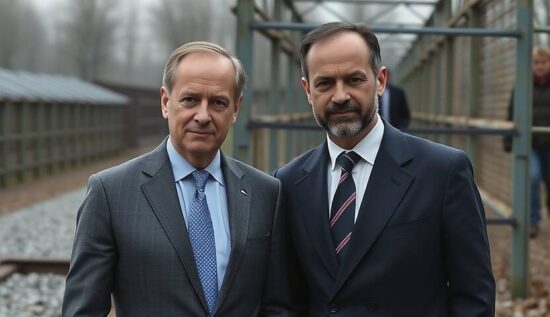Poland Allows Israeli Prime Minister to Attend Auschwitz Anniversary, Despite International Arrest Warrant
Polish Prime Minister Donald Tusk announced on Thursday that the country has extended an invitation to Israeli Prime Minister Benjamin Netanyahu to attend the 80th anniversary of the liberation of the Auschwitz concentration camp, despite an international arrest warrant issued by the International Criminal Court in the Hague.
Tusk stated that the decision was made after President Andrzej Duda requested the government to ensure the safe stay of Netanyahu in Poland in connection with the ICC’s decision. The Polish government has adopted a special resolution, which guarantees the safe and secure stay of all guests, including Israeli officials, who want to participate in the annual events in Auschwitz.
The resolution, which was cited by Tusk, states that Poland will ensure the free and secure access and participation of high-ranking Israeli officials in the events commemorating the 80th anniversary of the liberation of Auschwitz.
Tusk emphasized that every representative of the State of Israel, who wants to participate in the events in Auschwitz, will be guaranteed safety.
When asked about the ICC’s arrest warrant, Tusk confirmed that Poland will not arrest any Israeli official who attends the events in Auschwitz, stating that “everybody, who represents Israel, whether it’s the president, the prime minister, or a minister, will have a guaranteed safety and will not be arrested.”
Tusk also expressed his confidence that there will be no negative international reaction to the decision, saying, “I am not here to be afraid, but to make decisions that I consider fair.”
The Auschwitz Museum has confirmed that ten state delegations, including the United States, France, and Germany, have already confirmed their participation in the events commemorating the 80th anniversary of the liberation of Auschwitz. Russia and Belarus, however, have been explicitly excluded, as their participation has been deemed unwelcome by Polish authorities, as it has been in the past three years.
Auschwitz-Birkenau was the largest and most notorious of the Nazi concentration camps, and it has become a symbol of the Holocaust. Between 1941 and 1945, approximately 1.4 million people lost their lives in Auschwitz, including around 1.1 million Jews. The camp was liberated by the Soviet Red Army on January 27, 1945. In 1947, a museum was established on the site of the former Nazi concentration camp, and in 1979, it was added to the UNESCO World Heritage List.





